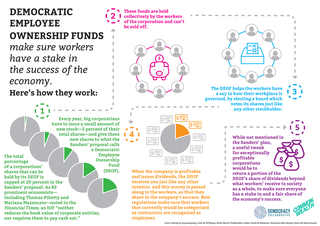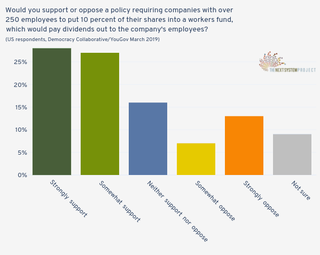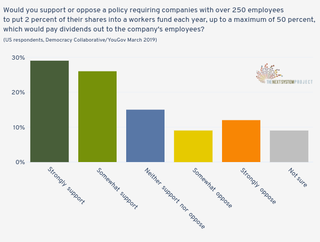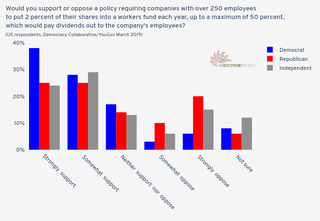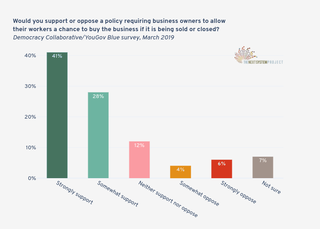Vermont Sen. Bernie Sanders has put forward a set of proposals that would”fundamentally shift the wealth of the economy into the hands of those who create it.”
One of his proposals is the creation of “democratic employee ownership funds,” a vehicle through which workers of large companies would have an ownership stake and voice, giving them as a bloc the same rights and potential for wealth-building as shareholders. They are patterned after the “inclusive ownership funds” that are featured in our report with the United Kingdom-based think tank Common Wealth, “Democratic Ownership Funds: Creating Shared Wealth and Power.”
The Next System Project’s Peter Gowan, who co-authored that report as well as “Right to Own: A Policy Framework to Catalyze Worker Ownership Transitions,” which advances “inclusive ownership funds” as a vehicle for worker ownership, told The Washington Post, “What we want is democracy within the workplace, so the decisions aren’t all being made by a tiny number of people.”
Similar to the fund structure we propose in our report, the Sanders proposal would require all publicly traded companies, and privately held companies with at least $100 million in annual revenue or assets, to place at least 2 percent of their stock or ownership share into a democratic employee ownership funds until the share of ownership in the fund reaches at least 20 percent. While the ownership share in the fund would be held by the workers collectively, not individually, each worker would receive a share of corporate profits through the fund. A board of trustees selected by the workers would manage the fund and represent worker interests at corporate board meetings.
According to Sanders, 56 million workers in more than 22,000 companies would benefit under this plan. Once the funds representing these workers achieved a 20 percent ownership stake, these workers could expect, based on the recent economic returns of the nation’s top 1,000 companies, an average dividend payment of over $5,000 per year.
Sanders would also guarantee a “right of first refusal” to employees if their workplace is put up for sale, is closing, or is moving overseas. The proposal mirrors our “right to own” plan. Under the Sanders proposal, workers would decide if they wanted to purchase the business, and if they were interested they could receive financial assistance from an “employee ownership bank” created to finance employee ownership deals and provide technical assistance.
Graphic: How democratic employee ownership funds would work
Video: How “right to own” would work
Polling: Public supports inclusive ownership
Working with YouGov, we asked survey respondents in the spring of 2019 if they would support a policy requiring large companies to put at least 10 percent of their shares into a workers fund that would pay dividends out to the company’s employees. In that poll, 55% indicated they would support such a policy, while only 20% opposed. A similar percentage indicated they would support an even more robust policy. These charts lay out the details.

